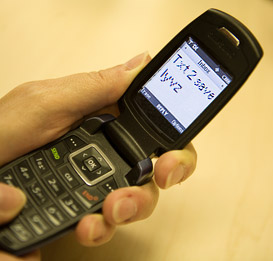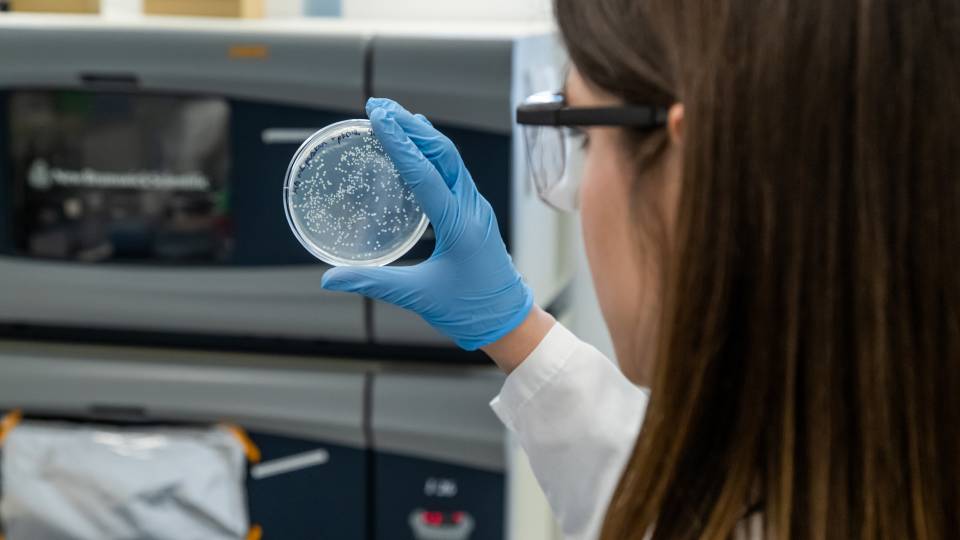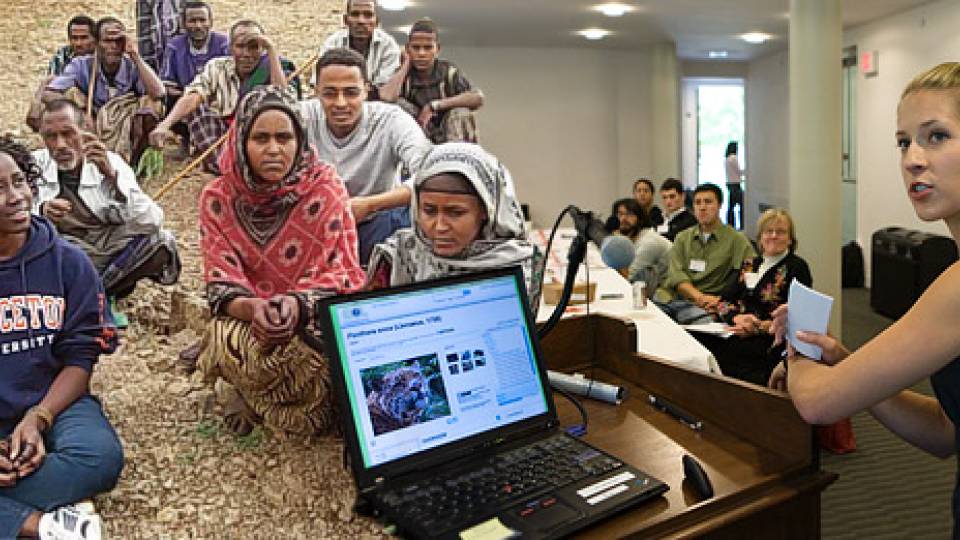From the June 16, 2008, Princeton Weekly Bulletin
Recent Princeton graduate Katy Digovich has been awarded a Compton Mentor Fellowship to establish a program that would enable HIV/AIDS patients in Botswana to receive text message reminders to take their medicine, aiming to solve a common problem in a country deeply afflicted by the virus.
Digovich spent last summer in Botswana gathering data for her senior thesis on HIV/AIDS treatment, and her on-the-ground observations helped her earn the $35,000 award, which is sponsored by the Compton Foundation of Redwood City, Calif.
In Botswana, which has the world's second-highest prevalence rate of HIV/AIDS, the government provides antiretroviral drugs -- which inhibit the replication of HIV -- through a partnership with Merck & Co. and the Bill & Melinda Gates Foundation, so price is not a concern for patients. Digovich's thesis on patients' adherence to these drugs found that forgetfulness was the biggest factor in patients not taking their medicine.
In her travels, she saw something that could help them remember: cell phones.
"I couldn't help noticing how many people had cell phones," said Digovich, a member of the class of 2008 from Palo Alto, Calif., who majored in ecology and evolutionary biology. "Even in rural villages, you'd see a woman walking along with a child on her back, fruit on her head, talking on a cell phone."
Digovich will use the fellowship to implement a cell phone text message system to remind patients to take their pills, refill prescriptions and go to doctor appointments. The grant will allow Digovich to work with chemist Harriet Okatch of the University of Botswana and fund a six-month study of the cell phone system with 250 patients. If the program is successful, Digovich will work with government officials to establish it as a national program. In the country of 1.8 million people, cell phone companies report having 1 million cell phone users, so accessibility to phones should not be a barrier, Digovich said.

"I saw a potential in Katy that I had not seen in any other undergraduate student. Most importantly, in Katy I see a genuine sense of care and passion and the desire to make a difference," said Okatch, describing why she chose to work with Digovich. "I am educating the public about the causes of drug-resistance mutations, with the major cause being non-adherence. I feel Katy's project would be the next component. ... Use of cell phones in a technology-poor setting such as Botswana is the most appropriate, because a very large population of the country owns cell phones, and the network coverage is national."
Botswana has a stable, healthy economy and government, but HIV/AIDS has lowered the country's productivity and lessened the government's ability to provide services, Digovich noted. Since the government is investing in antiretroviral drugs, she said it should also invest in people using the medicines, which must be taken several times a day, at specific times. If patients fail to take their medicine more than 5 percent of the time, HIV can evolve and become resistant to the drugs.
In sub-Saharan Africa, second-line HIV/AIDS drugs cost 10 times as much as first-line antiretroviral drugs, "so the government can save a lot of money" by investing in a system to make sure patients take their medicine, Digovich said.
Daniel Rubenstein, chair of the Department of Ecology and Evolutionary Biology, encouraged Digovich to apply for the Compton fellowship and helped her throughout the process. Her proposal was particularly strong, Rubenstein said, because of the support network she built during her summer in Botswana, gathering data and working on HIV/AIDS education with the Youth Health Organization's radio and traveling shows.
"With this backing she should have no trouble implementing the plan and sustaining it," Rubenstein said. "If infected individuals take their medicine regularly not only will they live longer and healthier lives, they will be avoiding a problem that arises when drug resistance increases the risk to all. This win-win outcome will have a huge impact."
In her four years at Princeton, Digovich played varsity basketball and earned a certificate in theater and dance. After her year in Botswana, she hopes to work on AIDS treatment in Brazil before pursuing a joint medical degree and doctorate so she can better address the science and policy issues involved with AIDS treatment.
"The problem is not that drugs aren't working but patients are not taking them the correct way," she said. "The only way to resolve the problem is understanding from the policymakers, scientists and patients to help change the way things are."
Digovich is one of 10 Compton Mentor Fellowship recipients chosen among students at 10 selected U.S. colleges and universities.



